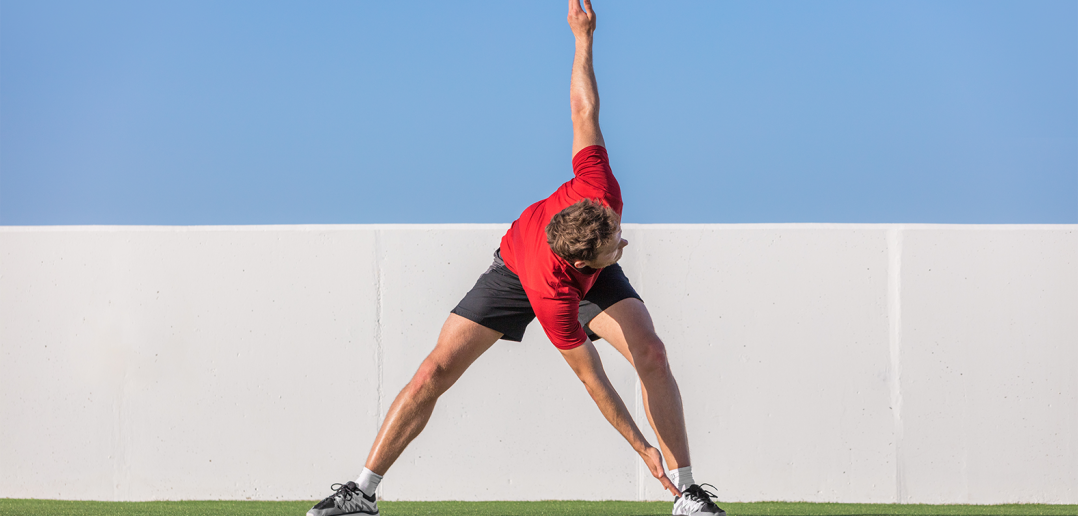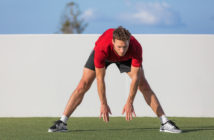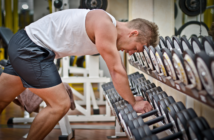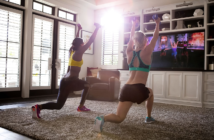There are few things that a certain in life, but the progression of time is one. At your peak, in your late 20s, it’s difficult to look forward and imagine what’s to come, but by your mid-30s, your body aches more often, takes longer to recover from injury and it’s much harder to just get out on to the soccer pitch for an hour and keep up with players ten years younger.
You only understand this with hindsight. When you hit your peak years, it’s difficult to understand why you should warm up or stretch after exercising and most of us try and carry on as before. However, whatever your age, it’s worth putting in some prep work in advance as your body will reap the rewards as you progress through the years.
There are ways to ‘cheat’ the system and add some youth to your body and keep going for longer, recover more quickly and keep your body, mind and focus, fresh. What do we at Short Motivation recommend?
Sit Less
Rather than thinking about running miles each week which can have a detrimental impact on your knees, a good starting point is simply to sit less. Chances are you are in an office job and spend the majority of your day sitting at a desk and commuting to work.
which can have a detrimental impact on your knees, a good starting point is simply to sit less. Chances are you are in an office job and spend the majority of your day sitting at a desk and commuting to work.
This has a huge impact on your health and has been dubbed as “sitting is the new smoking” by Dr Levine at the Mayo Clinic. Standing versus sitting has been found to reduce the risk of weight gain and obesity, lowers the risk of heart disease, cancer, metabolic diseases such as diabetes, increases energy, productivity and finally lowers long-term mortality. Which means you can expect to live longer.
While there are many more factors at play, a 2012 study from Katzmarzyk & Lee, assessing the impact of sitting and television viewing on adults in the US, found that people who simply stand more often had an estimated gain in life expectancy of 2 years. You have many reasons for maybe taking a walk after lunch, or walking to work, or maybe even see if you can stand up for some periods of work, with the wealth of research coming out around this subject the way our offices are set up is changing.
Take Up Yoga
With the number of people dressing in yoga apparel, you’d think we’d all be fit and supple by now, but yoga wear isn’t directly correlated with the number of people who actually take up the exercise. The key question is, will yoga have any health benefits and keep you feeling young?
We are well aware of the zen that yoga creates, it can help reduce cortisol the stress hormone and bring you reduced stress levels which is related to keeping healthy and feeling young. Another main benefit of yoga is the flexibility it offers your body. As we age, we tend to lose flexibility, muscle mass and elasticity in our skin. Yoga can help you maintain or increase muscle mass or increase stability. Chatterjee & Mondal found that regular intensive yoga practice was linked to an increase in Growth Hormone (GH) and dehydroepiandrosterone sulphate (DHEAS). The growth hormone has been called the fountain of youth.
Lift Weights
We associate weight lifting with building muscle for aesthetic purposes. But could there be a 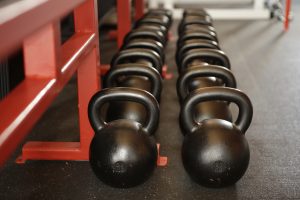 benefits for health and keeping youthful as well? Studies have shown that weightlifting becomes more important as you age, as it can reverse the signs of ageing at the cellular level, which sounds fantastic, but who really cares and what does it mean?
benefits for health and keeping youthful as well? Studies have shown that weightlifting becomes more important as you age, as it can reverse the signs of ageing at the cellular level, which sounds fantastic, but who really cares and what does it mean?
Physical activity is linked with maintaining our body and improved cognitivity as we age. As we age, we experience white-matter lesions in our brain, meaning some of our brain connections diminish. A study conducted in 2015, found that strength training twice a week reduced white matter lesions in women aged 65-75 (Bolandzadeh et al. 2015). Picking up weights will act preventative measure. Additionally, increasing muscle mass and bone density will also have a protective effect against falling over, other injuries and also leads to an improved posture, again preventing sign of ageing as we walk long, tall and strong.
Consider Pilates
In addition to yoga, there are other bio hacks we can take up to slow ageing. One of these is pilates.
Pilates is a set of exercises which will improve your core and has an advantage of a low impact on your body. It improves bone density, promotes weight loss can ease back pain as well, which is one of the major issues as we begin to age. Additionally, it also improves posture, and flexibility which are, again, key to staying and feeling young.
Stretching
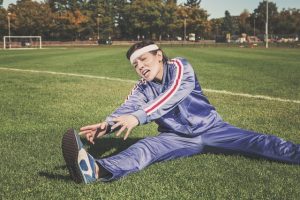 Stretching has anti-aging benefits across all areas. The advantages are huge. It creates a more flexible body, thus preventing you from picking up an injury (which, after your peak years, can take your body far longer to recover), it helps posture by loosening your muscles, especially in the lower back. It can increase stamina, meaning your muscles can work for longer, promotes improved blood circulation by warming your body before you exercise, plus post-exercise can reduce soreness.
Stretching has anti-aging benefits across all areas. The advantages are huge. It creates a more flexible body, thus preventing you from picking up an injury (which, after your peak years, can take your body far longer to recover), it helps posture by loosening your muscles, especially in the lower back. It can increase stamina, meaning your muscles can work for longer, promotes improved blood circulation by warming your body before you exercise, plus post-exercise can reduce soreness.
Stretching before and after any exercise will enable you to perform at your maximum, improve muscle growth and offer a more competitive edge. You should spend a good ten minutes stretching before you exercise and around the same, after exercise, using the time post-exercise to bring your heart rate down.
Get More Sleep
 One of the benefits we overlook is the importance of sleep. Not only does it help recovery from exercise, a lack of sleep will also bring increased chances of diabetes, depression, cardiovascular disease, and lead to weight gain.
One of the benefits we overlook is the importance of sleep. Not only does it help recovery from exercise, a lack of sleep will also bring increased chances of diabetes, depression, cardiovascular disease, and lead to weight gain.
All the positive reasons for performing exercise could be reversed or stunted if you do not get enough sleep. Whilst we get told we should aim for 8 hours of sleep, but the truth is that this varies by both the adult and age, with the range within 6-8 hours. The reason for this is due to the fact that we go through different stages of sleep, and they are crucial for our body to repair cells and recover.
Obviously, some people will need more or less and it’s up to you to see the benefits for your body. If you start seeing dull skin and bags under your eyes, it’s a sign you may need to get a good nights rest, or if you cannot do this, try to get a quick nap in during the day (but aim for no longer than 20 minutes).
Summary
If you’re young, you’re probably sitting there right now thinking ‘why?’ and, frankly, like a lot of people simply head straight out for a run, or to play a team game and do not need to worry about any of these tips.
However, many studies have been conducted on the older population to see what can be done to prevent/reverse ageing and it’s important to start as soon as possible. It makes exercising at a higher level easier to maintain, thus you won’t struggle to get going, later.
Create a habit. On average it takes 66 days to get into a routine and once the routine is formed your body will quickly tell you if you’ve failed in a daily task, even this is something simple as a daily walk or standing regularly during work. Just these small changes will make a huge difference to body and mind, especially if you perform them daily.

